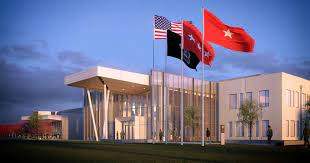Army switches up cyber leadership

In a switcheroo, the Army announced two top officers will change roles at Army Cyber Command and the Cyber Center of Excellence.
Maj. Gen. Neil Hersey will become the deputy commanding general (operations) at Army Cyber Command, according to a Feb. 23 announcement.
Most recently, he commanded the Cyber Center of Excellence, taking the helm in 2019.
Brig. Gen. Paul Stanton, will take over that job as commanding general of the Cyber Center of Excellence. He is leaving the position that Hersey will fill: commanding general (operations) at Army Cyber Command.
Both are located at Fort Gordon, what Army leaders now refer to as a “power projection platform.” The institutional portion of cyber — the schoolhouse and requirements generators for new capabilities — as well as the operational force — ARCYBER — are located in the same area.
Leaders have said this tighter synergy allows for greater advancements in cyber policy, doctrine and capabilities because doctrine writers can sit alongside operations on mission. It also allows operators and commanders to easily transition lessons learned to the schoolhouse to update curricula.
Army Cyber Command is in the midst of a multiyear effort to transition from just cyberspace operations to an “information advantage,” which seeks to fold in the larger information domain to include electromagnetic spectrum operations and information operations.
The Army recently folded the electronic warfare personnel with its cyberspace career field. The schoolhouse is now teaching both together, as well as undertaking information operations.
Photo: An artist's rendering of Fortitude Hall, Army Cyber Command's headquarters at Fort Gordon. (Army Cyber Command)




